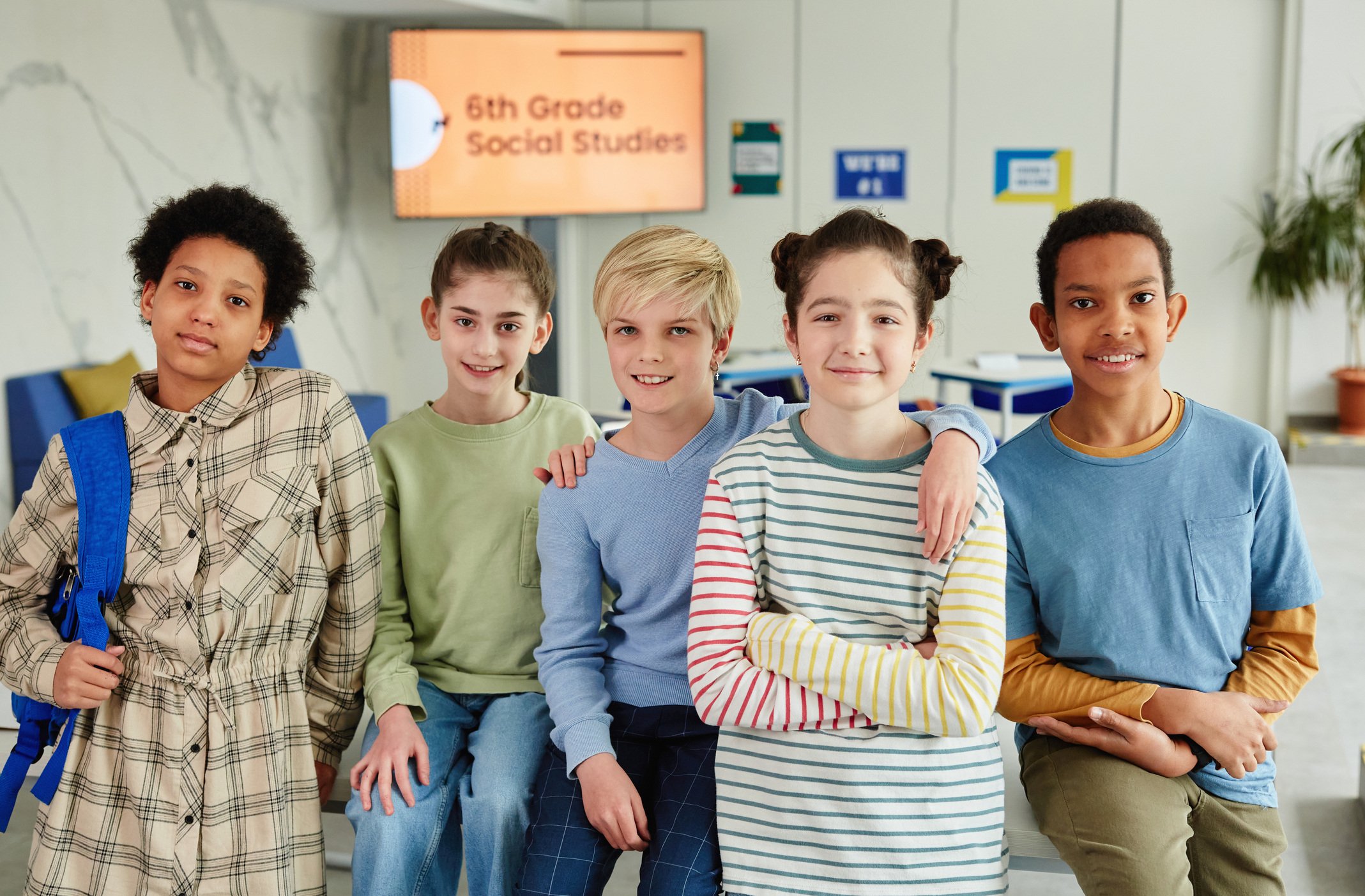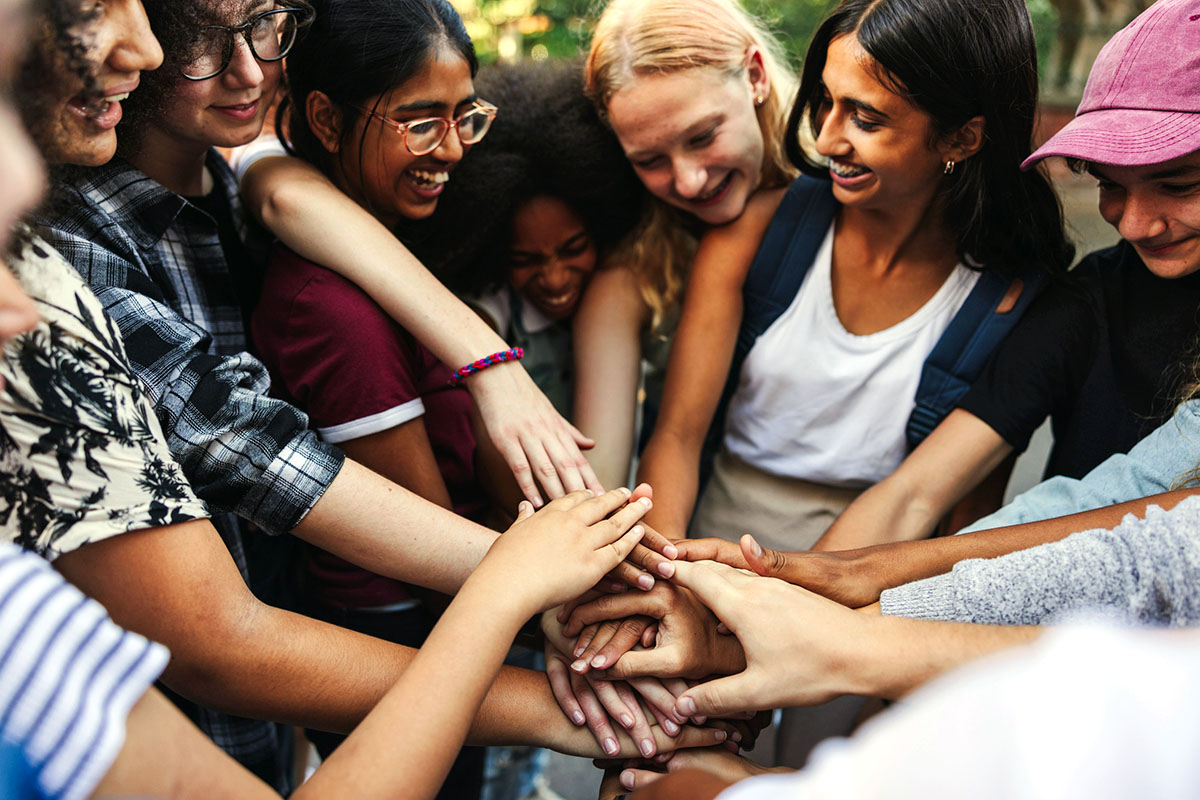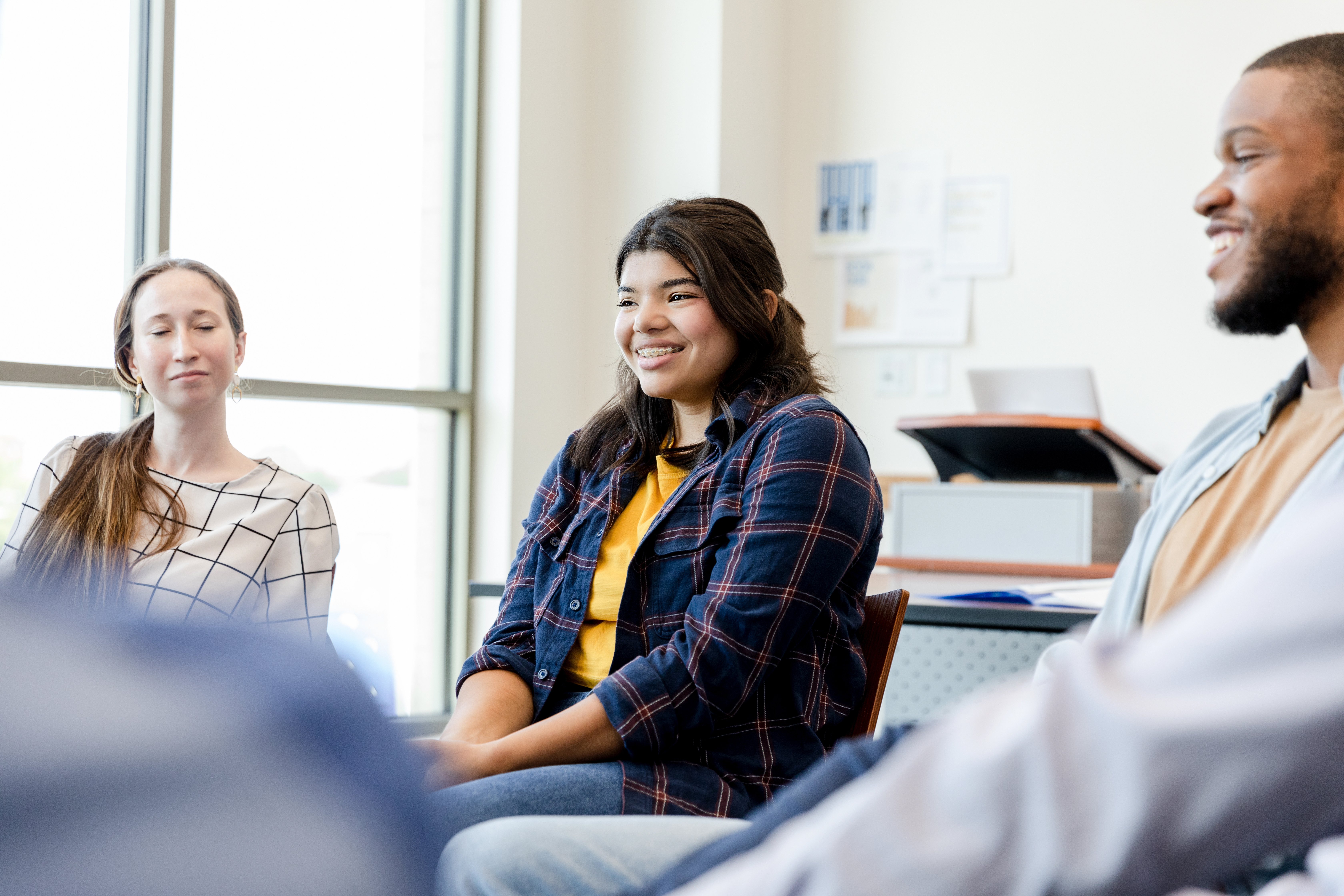Blog
Surviving to Thriving: Developmental Relationships Are the Antidote to Youth Loneliness
Loneliness has reached epidemic levels in the United States, and it is hitting our young people hard.
It’s a double punch for youth who have already experienced so much loss and isolation during the COVID-19 pandemic.
There’s no vaccine for loneliness. So what is the answer to the problem that is making so many young people spiral into despair?
There is no single solution to youth loneliness. However, a new advisory from the nation’s Surgeon General proposes a solution that dovetails with decades of Search Institute research and practice: developmental relationships.
Young people thrive when they experience supportive developmental relationships in their families, schools, programs, and communities.
Just how bad is the youth loneliness crisis? And what can caring adults do to help build the relationships that will help them grow and thrive?
The Problem: The Loneliness Epidemic
Just when the COVID-19 pandemic is starting to recede from our list of health concerns, a new crisis is emerging.
A May 3, 2023 General Advisory from US Surgeon General Dr. Vivek Murthy sounded a stern warning about the epidemic of loneliness and isolation. “Even before the onset of the COVID-19 pandemic, approximately half of U.S. adults reported experiencing measurable levels of loneliness,” the advisory states. “Disconnection fundamentally affects our mental, physical, and societal health. In fact, loneliness and isolation increase the risk for individuals to develop mental health challenges in their lives, and lacking connection can increase the risk for premature death to levels comparable to smoking daily.”
The advisory spells out the significant negative health consequences of the loneliness epidemic. When people lack sufficient connection in their lives, they have
- A 29% increase risk of heart disease
- A 32% increased risk of stroke
- A 50% increased risk of developing dementia for older adults
- A 60% risk of premature death
The Youth Loneliness Crisis
The full advisory notes that the rate of loneliness among young adults has increased every year between 1976 and 2019. Young adults are nearly twice as likely to report feeling lonely than people over the age of 65. And like so many social justice issues, marginalized populations face increased risks for loneliness and isolation.
The Surgeon General’s Advisory doesn’t stop at outlining the problem, however. It goes on to spell out an antidote to loneliness: social connections.
“Given the significant health consequences of loneliness and isolation, we must prioritize building social connection the same way we have prioritized other critical public health issues such as tobacco, obesity, and substance use disorders,” the Surgeon General says. “Together, we can build a country that’s healthier, more resilient, less lonely, and more connected.”
The Power of Strong Connections in the Lives of Young People
The Surgeon General’s detailed report on the epidemic of loneliness confirms what decades of Search Institute work has shown. The connections — or relationships — that we form with others are crucial for healthy bodies and minds. In fact, the Advisory lays out a National Strategy to Advance Social Connection. “Each of us can start now, in our own lives, by strengthening our connections and relationships,” the Advisory states, “The informal practices of everyday life (the norms and cultures of how we engage one another) significantly influence the relationships we have in our lives.”
Although the Advisory uses slightly different language, the evidence points to the need for more meaningful connections between young people and their families, schools, and communities. We call those developmental relationships.
Our research has shown that many young people lack developmental relationships in schools and youth programs. In a sample of nearly 5,500 youth in Minnesota, only 42% reported that they have strong developmental relationships with the staff in their schools and programs.
'Relationships Are the Antidote'
How are we doing when it comes to nurturing these critical relationships? A pre-pandemic Search Institute survey of more than 25,000 students in grades 6-12 showed that 1 in 5 youth report no strong relationships in their lives. Data collected from more than 7,000 young people between Fall 2020 and Spring 2022 shows that connections between young people and their teachers and program staff were strong. However, 80% of students reported that there is room for growth and nearly a third of these young people feel that these relationships are weaker compared to pre-pandemic.
This unfortunate reality requires action at the personal, and institutional, level.
We know developmental relationships matter. In both quantitative (surveys) and qualitative (interviews and focus groups) studies, young people who experience developmental relationships consistently report better developmental outcomes across academic, psychological, social-emotional, and behavioral domains. Specifically, increased experience of developmental relationships among young people is associated with better resilience in the face of stress and adversity, including managing emotions well, taking personal responsibility for their actions, being good at making and keeping plans, and having a sense of purpose in life.
Search Institute’s Developmental Relationships framework provides an approach that can help teachers, parents, practitioners, and other caring adults forge the kinds of relationships that serve as the antidote to loneliness.
The developmental relationships framework is made up of 5 elements, expressed in 20 specific actions. The elements are:
- Express care
- Challenge growth
- Provide support
- Share power
- Expand possibilities
When adults understand and prioritize developmental relationships, they help young people discover who they are, develop abilities to shape their own lives, and learn how to engage and contribute to the world around them.
We all have a part to play in this transformation from loneliness and disconnection to connection and thriving. The entire web of relationships—including peers, near peers, families, and other adults—matters to young people. When they experience support that challenges them to become their best selves, they do better in school, at home, and in life.
In order to help stem the tide of loneliness, we need to invest in strategies that deepen and strengthen the developmental relationships that young people need to thrive.
Focus on Families
The 2020-2022 data also shows that young people viewed their relationships with their families as a strength that was the least negatively impacted by the pandemic. Many young people felt that these relationships were stronger as a result of the pandemic. Parent-child relationships are a critical component of youth development, and families that experience high amounts of stress need access to resources to strengthen these positive relationships.
One Search Institute study showed that young people from high-stress families who had strong developmental relationships with their parents were 7-33 times more likely to report positive developmental outcomes than those with weaker developmental relationships.
That’s why it’s so important to connect families to resources and support for developing the types of relationships that will help their children and youth develop resilience.
A Community Approach to Healing Loneliness
Anyone who works with young people knows that we can’t be all things to all young people at all times.
However, when communities are mobilized to provide strong developmental relationships for young people and connect them to the family-strengthening resources they need to pursue their goals, we are all better off.
Each of us can start now, in our own lives and work, by intentionally strengthening our connections and relationships.




